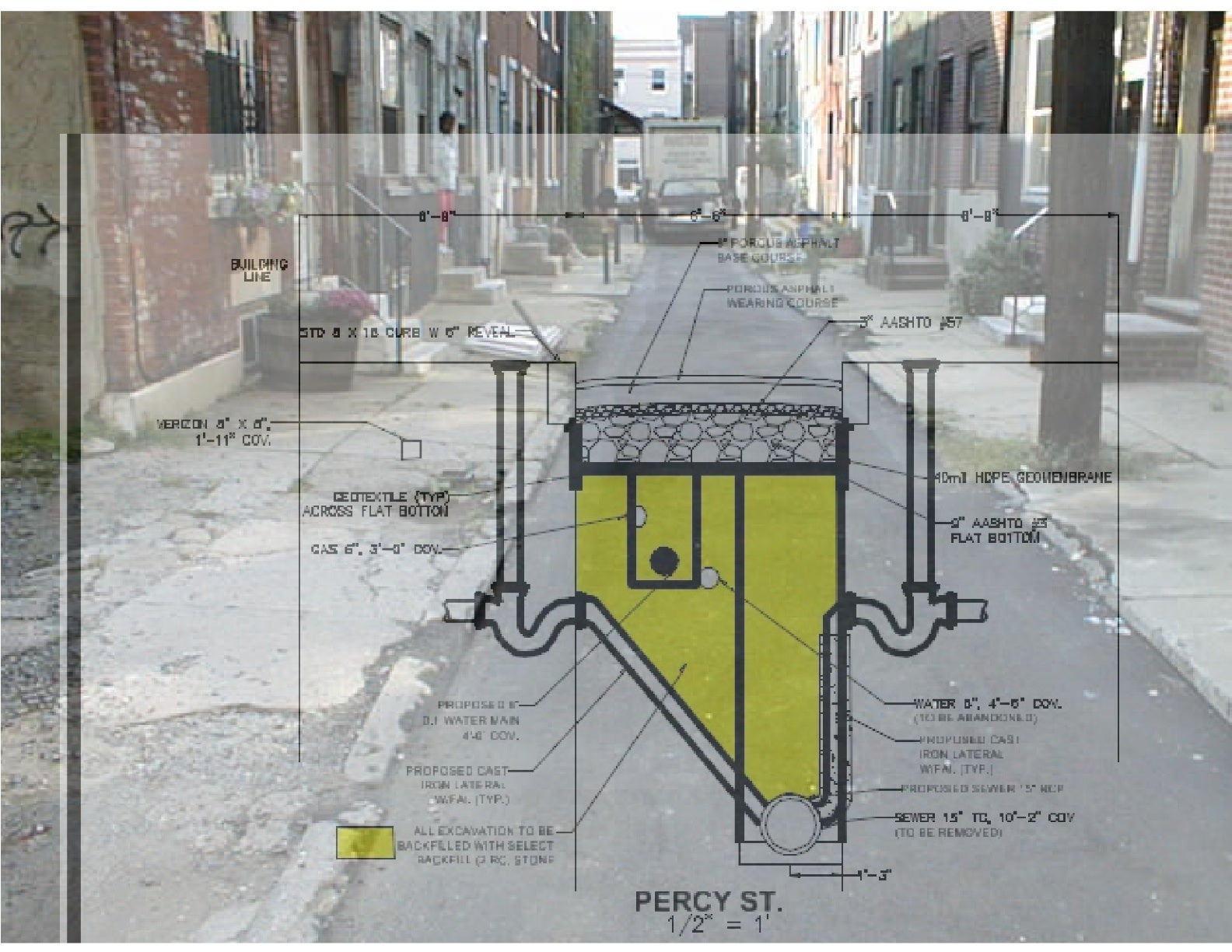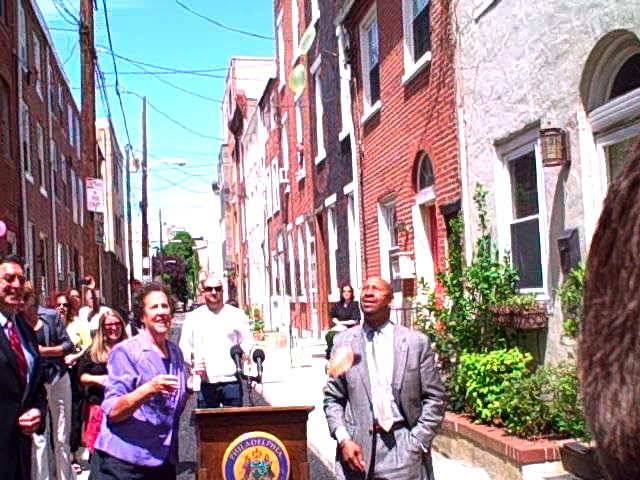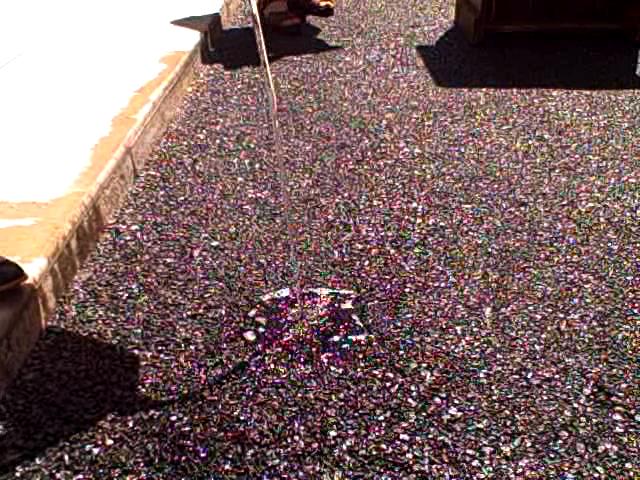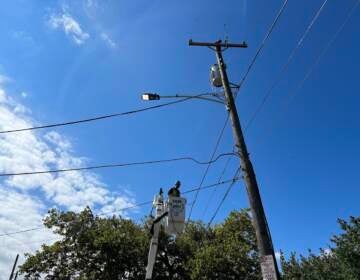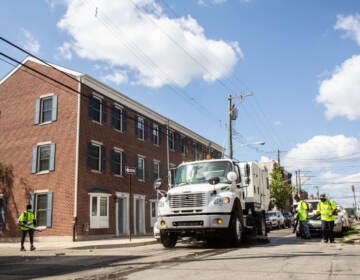South Philly gets a street that will drink up water
One South Philadelphia street just got a little greener ― though you might not be able to tell just by looking at it.
The asphalt of the 800 block of South Percy Street appears as black as ever. But underneath the surface is a whole different story.
The Water and Streets departments are using it to pilot a new initiative to make Philadelphia’s streets porous.
During a rain storm, water will seep through the asphalt ― rather than running into the nearest storm inlet and into the city’s rivers ― and soak into a layer of stone. Over time, water will slowly soak from the stone into surrounding soil.
“This is a new green street ― notwithstanding its color,” Mayor Nutter said at a press conference Tuesday afternoon.
This is just one initiative of a 25-year plan that the Water Department has rolled out called Green City, Clean Waters, which aims at reducing stormwater runoff to meet federally mandated pollution targets.
Like many older cities, much of Philadelphia is served by a combined sewer system, in which household waste and stormwater run into the same pipes. During a big rainstorm, those pipes overflow into rivers.
This street ― as well as other Water Department initiatives, like constructing swales and handing out rain barrels ― is meant to divert water from the sewer system to prevent that from happening.
The plan, which would cost $2 billion, is currently under review by the Environmental Protection Agency, and the mayor said EPA administrator Lisa Jackson “spoke glowingly” about the program when she visited the city a few weeks ago.
In addition to reducing stormwater, Nutter said the new street would be safer to drive on in the rain because no puddles will form on top and it should accumulate less ice in the winter.
The street is also expected to reduce basement flooding for the rowhomes on the block.
Don’t expect the city to install a porous street whenever it does a repaving project, though.
Jen Carlson, who was moving from Oxford Circle to this block as the press conference was going on, said she appreciated the project.
“It seems pretty awesome,” she said.
Most streets that get repaved only have work done on the first few inches of roadbed, while installing the infrastructure for a porous street is a more intensive process.
Andrew Stober, chief of staff for the Mayor’s Office of Transportation and Utilities, said the city will consider installing porous streets when more extensive work ― such as replacing water or sewer mains ― is needed, especially on narrow streets in North and South Philadelphia.
Contact the reporter at acampisi@planphilly.com
WHYY is your source for fact-based, in-depth journalism and information. As a nonprofit organization, we rely on financial support from readers like you. Please give today.



